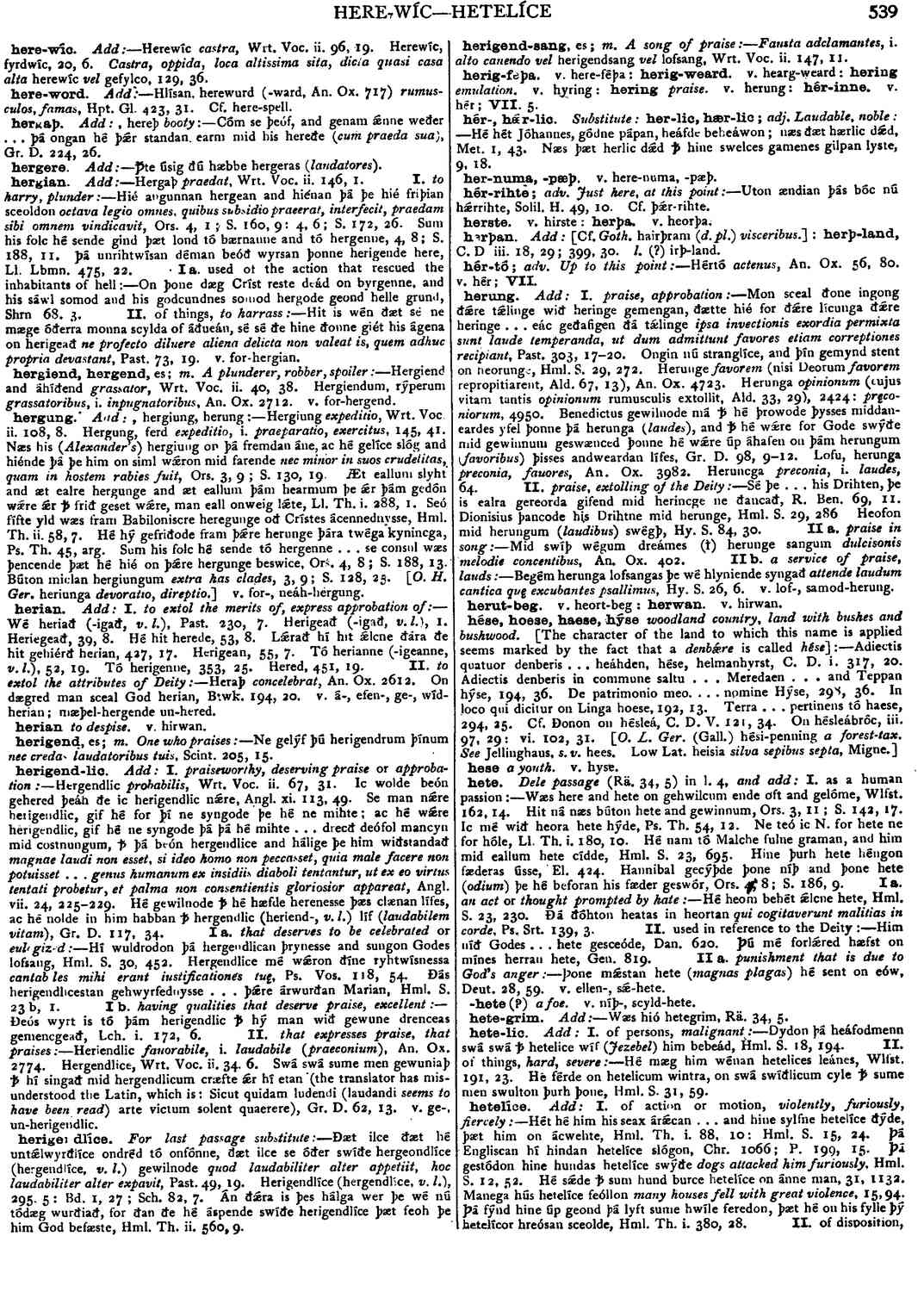herigend-lic
-
Hergendlic
probabilis,
- Wrt. Voc. ii. 67, 31 .
-
Ic wolde beón gehered þeáh ðe ic herigendlic nǽre,
- Angl. xi. 113, 49 .
-
Se man nǽre herigendlic, gif hé for þí ne syngode þe hé ne mihte; ac hé wǽre hérigendlic, gif hé ne syngode þá þá hé mihte . . . drecð deófol mancyn mid costnungum, ꝥ þá be-ón hergendlice and hálige þe him wiðstandað
magnae laudi non esset, si ideo homo non peccasset, quia male facere non potuisset . . . genus humanum ex insidiis diaboli tentantur, ut ex eo virtus tentati probetur, et palma non consentientis gloriosior appareat,
- Angl. vii. 24, 225-229 .
-
Hé gewilnode ꝥ hé hæfde herenesse þæs clænan lífes, ac hé nolde in him habban ꝥ hergendlic (heriend-, v. l.) líf
(laudabilem vitam),
- Gr. D. 117, 34.
-
Hí wuldrodon þá hergendlican þrynesse and sungon Godes lofsang,
- Hml. S. 30, 452 .
-
Hergendlice mé wǽron ðíne ryhtwísnessa
cantabiles mihi erant iustificationes tuę,
- Ps. Vos. 118, 54 .
-
Ðás herigendlicestan gehwyrfednysse . . . þǽre árwurðan Marian,
- Hml. S. 23 b, I.
-
Ðeós wyrt is tó þám herigendlic ꝥ hý man wið gewune drenceas gemencgeað,
- Lch. i. 172, 6 .
-
Heriendlic
fauorabile, i. laudabile (praeconium),
- An. Ox. 2774 .
-
Hergendlice,
- Wrt. Voc. ii. 34. 6 .
-
Swá swá sume men gewuniaþ ꝥ hí singað mid hergendlicum cræfte ǽr há etan
(the translator has misunderstood the Latin, which is: Sicut quidam ludendi (laudandi seems to have been read) arte victum solent quaerere),- Gr. D. 62, 13 .
Bosworth, Joseph. “herigend-lic.” In An Anglo-Saxon Dictionary Online, edited by Thomas Northcote Toller, Christ Sean, and Ondřej Tichy. Prague: Faculty of Arts, Charles University, 2014. https://bosworthtoller.com/52423.
Checked: 1